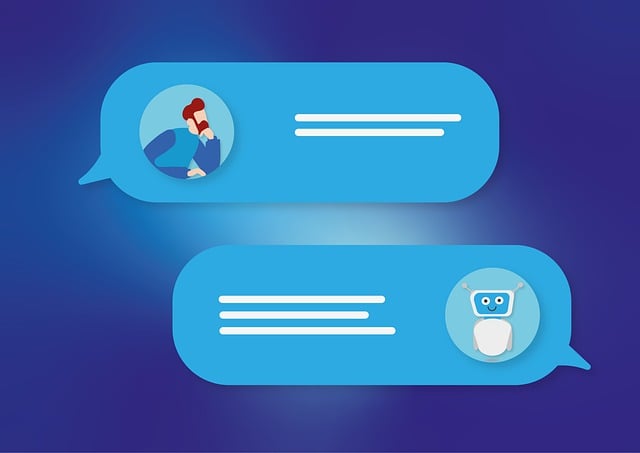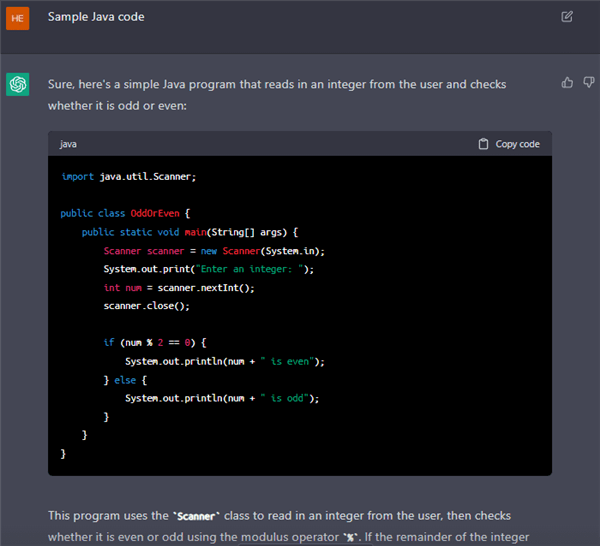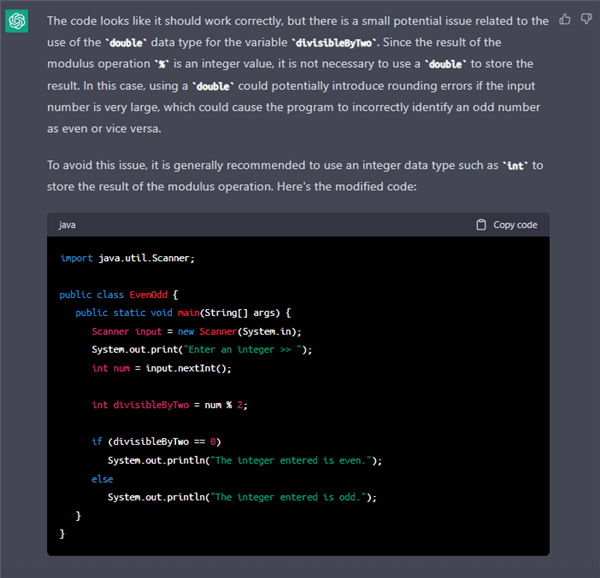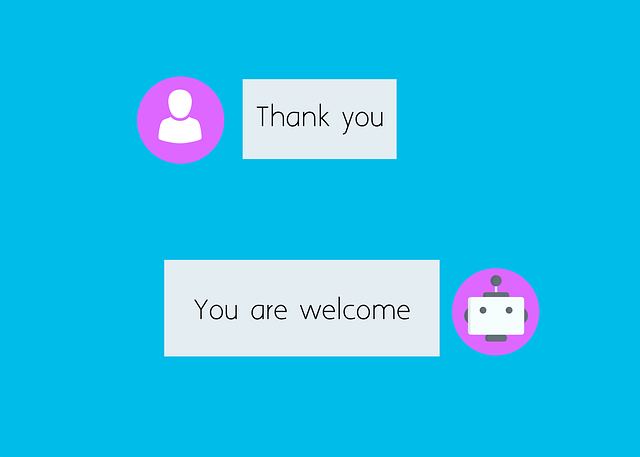The combination of conversational AI, versatility, efficiency, accessibility, and continuous learning has contributed to ChatGPT’s popularity and made it a valuable tool for a wide range of applications. Do you ever think of using ChatGPT for your business? Can it benefit your business?
ChatGPT is a language model powered by AI that can give you insights and suggestions that could be useful for your company. Generally, ChatGPT can help you automate many aspects of your business and provide valuable insights that can help you make better decisions and achieve more tremendous success.
Let’s go over what ChatGPT is and in what ways may it assist you with running your business?

Business Research
ChatGPT can provide various services to help you conduct effective business research. For example, it enables you to gather and analyze data to inform your business decisions, develop effective marketing strategies, and identify new growth opportunities.
- Market Research: ChatGPT can help you gather information about your target market, including customer demographics, behavior, and needs. As a result, you’ll be in a better position to create products and services that appeal specifically to your target market and boost your advertising efforts.
- Industry Analysis: ChatGPT can help you analyze your industry, including identifying key competitors, industry trends, and market opportunities. This can help you stay informed of market changes and trends and stay ahead of the competition.
- Competitive Analysis: ChatGPT can assist you in analyzing your competitors’ strengths and weaknesses, identifying their marketing strategies, and benchmarking your own business against theirs. It helps you make informed decisions about your marketing, sales, and business strategy.
- Customer Surveys: ChatGPT can help you design and conduct customer surveys to gather feedback about your products or services. You can use this information to gauge consumer satisfaction and determine where changes are needed.
- ChatGPT can help you look at data from different sources, like sales data, customer data, and market research data, to learn more about your business and find growth opportunities.
- Report Writing: ChatGPT can assist you in writing reports that summarize your research findings and provide actionable insights. Using the data presented here, companies can better formulate their plans and strategies.

Writing and Debugging Code
ChatGPT can help with writing and debugging code to a certain extent. Here are some ways in which ChatGPT can assist with coding tasks.
Writing
While ChatGPT is not explicitly designed for writing code, it can still be a helpful resource for getting started on or unstuck from a coding project. Here are some tips for using ChatGPT to write code:
- Ask for general programming concepts: ChatGPT can provide explanations of general programming concepts that may be helpful for writing code. You can ask for explanations of things like variables, functions, or loops to get a better understanding of how they work.
- Get coding tips: You may write code that is more effective and efficient with the help of coding tips and best practices that can be found on ChatGPT. For example, you can ask for tips on how to optimize a particular algorithm or how to structure your code for better readability.
- Use ChatGPT to brainstorm solutions: If you’re stuck on a particular problem or need help coming up with a solution, ChatGPT can provide suggestions and ideas that may help you get unstuck. You can explain the problem to ChatGPT and ask for suggestions on how to approach it, or ask for suggestions on how to improve a particular section of your code.
- Get help with the syntax: ChatGPT can provide guidance on the syntax for a particular language or library. For example, you can ask for help with the syntax for one specific function or method in Python or for guidance on using a particular JavaScript library.
- Ask for code examples: If you need help writing a particular code section, you can ask ChatGPT for code examples that may help you get started. ChatGPT can provide examples of how to write a specific function or how to structure a particular data structure.

While ChatGPT may not be able to write code for you, it can still be a helpful resource for getting started, learning new concepts, or getting unstuck on a coding project. Keep in mind that you will still need to put in the effort to write and debug your own code, but ChatGPT can provide guidance and support along the way.
Debugging
ChatGPT can provide insights that may help you debug code. Still, it’s important to note that it’s not designed specifically for this purpose and may not always be able to provide a solution. However, you can still try asking ChatGPT for help if you’re stuck on a particular issue with your code. Here are some tips for using ChatGPT to debug code:
- Be specific: When asking ChatGPT for help with debugging code, be as detailed as possible about your problem. Provide the error message you’re receiving, the code section causing the issue, and any relevant context that may help ChatGPT understand the problem.
- Explain your thought process: In addition to explaining the problem, it can be helpful to describe your thought process and what you’ve tried so far to solve the issue. This can help ChatGPT figure out how you’re approaching the problem and give you advice that fits your situation.
- Ask for general debugging tips: Even if ChatGPT cannot solve your specific issue, it may provide general debugging tips that can help you solve the problem on your own. You can ask ChatGPT for suggestions on how to approach the problem, common pitfalls to watch out for, or debugging strategies that may be helpful.
- Provide sample code: If you’re comfortable sharing your code, you can provide a sample of the code causing the issue. ChatGPT can review the code and provide suggestions on how to fix the problem or improve the code in general.

Remember that ChatGPT is not a replacement for a trained programmer or specialized debugging software. But it can still be an excellent way to look at a coding problem from a different point of view.
Content Creation
You’ll be able to produce content that is engaging, informative, and of high quality with ChatGPT’s assistance in various areas of the content development process. This will help you reach your business goals and connect with your target audience.
Here are some ways in which ChatGPT can help:
- Ideation: ChatGPT can help you brainstorm ideas for content that align with your brand, target audience, and business goals. This includes developing topics for blog posts, articles, videos, and other types of content.
- Research: ChatGPT can conduct research on various topics and provide you with data and information to support your content. This includes gathering statistics, case studies, and expert insights.
- Writing: If you want to produce high-quality content that is also well-researched, instructive, and engaging, ChatGPT can assist you in doing so. This type of writing includes blog posts, articles, white papers, and product descriptions, among other things.
- Editing: ChatGPT is able to assist you with editing your text to ensure that it is free of grammatical errors, that it is succinct, and that it is understandable. This involves checking for problems in spelling and punctuation, making sure that your information is easy to read, and optimizing the flow of your content as a whole.
- Optimization for search engines (SEO): ChatGPT can help you optimize your content for search engines by finding and using target keywords, making appealing meta descriptions, and making sure your information is easy to read.
- Content promotion: ChatGPT can help you develop a content promotion strategy to ensure your content reaches your target audience. This includes sharing your content on social media, making backlinks to it, and promoting it through email marketing.
Absolutely, in order to assist you in increasing the visibility of your website on the pages of search engine results, ChatGPT is able to offer advice and information on search engine optimization, often known as SEO. The following are some of the ways that ChatGPT can assist with SEO:
- Keyword research: ChatGPT can help you identify the right keywords to target by analyzing search volumes and competition for different keywords. ChatGPT can also help you find long-tail keywords that are less competitive but still very relevant to your target audience.
- On-page optimization: Title tags, meta descriptions, header tags, and content are all examples of on-page features that ChatGPT can help you optimize. ChatGPT is able to assist you in ensuring that these components are optimized for your target keywords, pertinent to the content you are creating, and appealing to the audience you are intending to reach.
- Off-page optimization: ChatGPT can help you develop a solid off-page optimization strategy, such as building quality backlinks to your website from reputable sources in your industry. ChatGPT can also help you find opportunities to build links and make sure your link profile is natural and full of different kinds of links.
- Content optimization: By working with ChatGPT, you can make sure that the material on your website is of the highest quality, is relevant to your audience, and is optimized for the keywords you’ve chosen. This includes deciding how things are put together, how keywords are used, and how readers are involved.
- Technical optimization: ChatGPT can assist you in identifying and fixing technical issues on your website that may be affecting your SEO. This means that you need to make sure your website works on mobile devices, loads quickly, and doesn’t have any broken links.
- Analytics and reporting: ChatGPT can provide you with analytics and reporting tools, such as Google Analytics, to help you track your website’s performance and interpret the data to make informed decisions. ChatGPT can help you figure out how well your website is doing, find ways to make it better, and track the effects of your SEO efforts over time.

Overall, ChatGPT can help you with all aspects of SEO. This will help you improve the visibility of your website on search engines, get more traffic, and reach your business goals.
Data Analysis
ChatGPT can use various tools and techniques, such as data visualization, regression analysis, clustering, and predictive modeling, to process and analyze data and derive insights that can inform your business decisions. Overall, ChatGPT can help you gain a deeper understanding of your business and make data-driven decisions to improve your performance and achieve your goals.

Here are some types of data that ChatGPT can analyze:
- Sales data: ChatGPT can help you look at your sales data to find trends, like the best-selling products or times when sales are at their highest, and figure out how your sales have changed over time.
- Marketing data: ChatGPT can help you look at your marketing data, such as click-through rates, conversion rates, and return on investment (ROI), to figure out how well your campaigns are doing.
- Customer data: ChatGPT can help you analyze your customer data, such as demographic and behavior data, to learn more about your target audience and find ways to make your customers happier and more loyal.
- Financial data: ChatGPT can help you look at your financial data, such as your income, expenses, and profitability, to figure out how well your business is doing and where you can improve.
- Website and app data: ChatGPT can help you analyze your website and app data, including traffic, user behavior, and engagement metrics, to optimize your digital presence and improve the user experience.
- Social media data: ChatGPT can help you analyze your social media data, such as engagement, reach, and sentiment, to figure out how well your business is doing on social media and find ways to improve.
Customer Support
How does your business provide customer service? Using email providers like qqmail, Yahoo, Gmail, or online chatting?
As a language model, ChatGPT can provide support and assistance to customers in various ways: like delivering prompt, reliable, and helpful customer support to ensure that your customers have a positive experience and are satisfied with your products or services. ChatGPT is a valuable resource for people and companies all over the world since it is open at all times, 365 days a year, and can be used from any location as long as there is an internet connection.

Here are some ways in which ChatGPT can assist with customer support:
- Answering customer questions: ChatGPT can answer customer questions about your products or services, such as pricing, features, and specs.
- Helping with technical problems: ChatGPT can help customers figure out how to fix technical problems with your products or services.
- Handling customer complaints and issues: ChatGPT can help with customer complaints and issues, like billing problems or faulty products, by giving advice on how to solve the problem or escalate it to the right department.
- Providing product recommendations: Based on a customer’s needs and preferences, ChatGPT can suggest products or services that will help them find the right solution.
- Helping with ordering and shipping: ChatGPT can tell customers how to place an order, help them track their orders, and answer questions about shipping and delivery.
- Feedback and suggestions: ChatGPT can collect customer feedback and suggestions and send them to your business. This can help you improve your products or services and make your customers happier.
Sales Assistance
As a language model, ChatGPT can assist in several ways as a sales assistant to help you generate leads, qualify prospects, close deals, and improve your overall sales performance. Here are some ways in which ChatGPT can help:
- Lead generation: Through research, data analysis, and customer segmentation, ChatGPT can help you find people who might be interested in your products or services.
- Customer outreach: ChatGPT can help you reach out to potential and current customers via email, phone, or live chat to tell them about your products or services, answer questions, and offer support.
- Sales qualification: ChatGPT helps with lead qualification by eliciting data on the prospect’s wants, means, and motivation to buy. As a result, you may narrow your sales efforts down to the most promising prospects.
- Sales funnel management: ChatGPT can help you manage your sales funnel by keeping track of leads and their progress through the sales process, making sure they get the proper follow-up and care.
- Proposal and quote creation: ChatGPT can help you make proposals and quotes for potential customers, including pricing, product specifications, and terms and conditions.
- Closing deals: ChatGPT can help you close deals by providing support during the negotiation and contract signing processes. This includes answering questions and resolving any issues that may arise.
- Sales reporting and analysis: ChatGPT can help you analyze sales data and identify trends, such as top-performing products or sales channels. This can help you adjust your sales strategy and improve sales performance.
Training and Onboarding
ChatGPT can help with a variety of tasks related to training and onboarding to help your company bring on new employees, train current employees, and improve the performance of all employees.
- Creating training materials: ChatGPT can help you create training materials like manuals, presentations, and videos to help new employees get up to speed or teach current employees new skills or processes.
- Providing on-demand training: ChatGPT can provide on-demand training and support to employees who need help with specific tasks or skills. This could mean having access to training materials and documentation, live chat and phone support, and other types of assistance.
- Conducting virtual training sessions: ChatGPT can conduct virtual training sessions via video conferencing tools such as Zoom, Google Meet, or Microsoft Teams. This can be especially helpful for teams working in different places or employees who can’t attend training sessions in person.
- Providing feedback and evaluation: ChatGPT can provide feedback and evaluations on employee performance during onboarding and training. This can assist in identifying employee training and support needs.
- Customizing training programs: ChatGPT can help you make training programs fit the needs of your organization, such as training on software, compliance, or topics that are specific to your industry.
- Evaluating how well training works: ChatGPT can help you determine how well training programs work by looking at data like employee performance, satisfaction, and retention rates.
